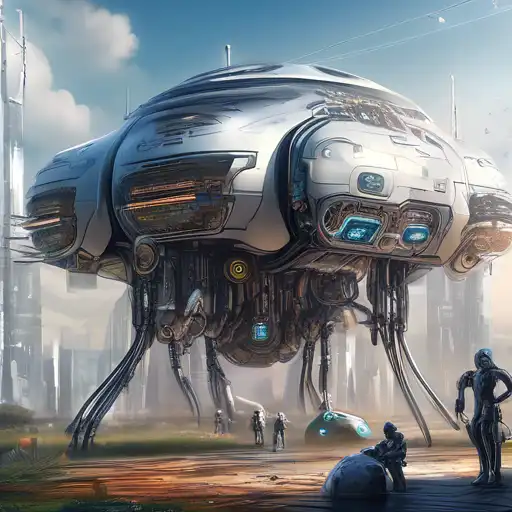Introduction to Artificial Intelligence's Evolution
Artificial Intelligence (AI) has transitioned from a futuristic concept to a pivotal part of our daily lives. Its rapid evolution continues to shape industries, redefine efficiency, and unlock new possibilities. This article delves into the current state of AI, exploring its advancements, challenges, and what the future holds.
The Current Landscape of AI
Today, AI is not just about robots or sci-fi movies. It's about machine learning algorithms that power recommendations on streaming platforms, voice assistants that understand natural language, and autonomous vehicles that navigate our streets. The integration of AI across sectors demonstrates its versatility and potential to revolutionize how we live and work.
Breakthroughs in AI Technology
Recent years have witnessed groundbreaking advancements in AI. From deep learning models that can generate human-like text to AI systems capable of diagnosing diseases with accuracy surpassing human experts, the pace of innovation is breathtaking. These breakthroughs are not just technological feats but also catalysts for societal transformation.
Challenges and Ethical Considerations
Despite its potential, AI's rapid development raises important questions. Issues such as data privacy, algorithmic bias, and the displacement of jobs are at the forefront of discussions. Addressing these challenges requires a collaborative approach among technologists, policymakers, and the public to ensure AI benefits all of humanity.
The Future of AI: What to Expect
Looking ahead, AI is set to become even more integrated into our lives. Innovations like quantum computing could further accelerate AI's capabilities, opening doors to solving complex problems in seconds that would take traditional computers millennia. The future of AI is not just about technological advancement but also about shaping a world where technology and humanity coexist harmoniously.
Preparing for an AI-Driven Future
As AI continues to evolve, so must our readiness to embrace its changes. Education and reskilling will play crucial roles in preparing the workforce for new opportunities. Similarly, ethical frameworks and regulations need to keep pace with technological advancements to mitigate risks and maximize benefits.
Conclusion
The journey of AI is far from over. Its current trajectory promises a future filled with unimaginable possibilities. By understanding today's advancements and preparing for tomorrow's challenges, we can ensure that AI's future is bright, inclusive, and beneficial for all.
